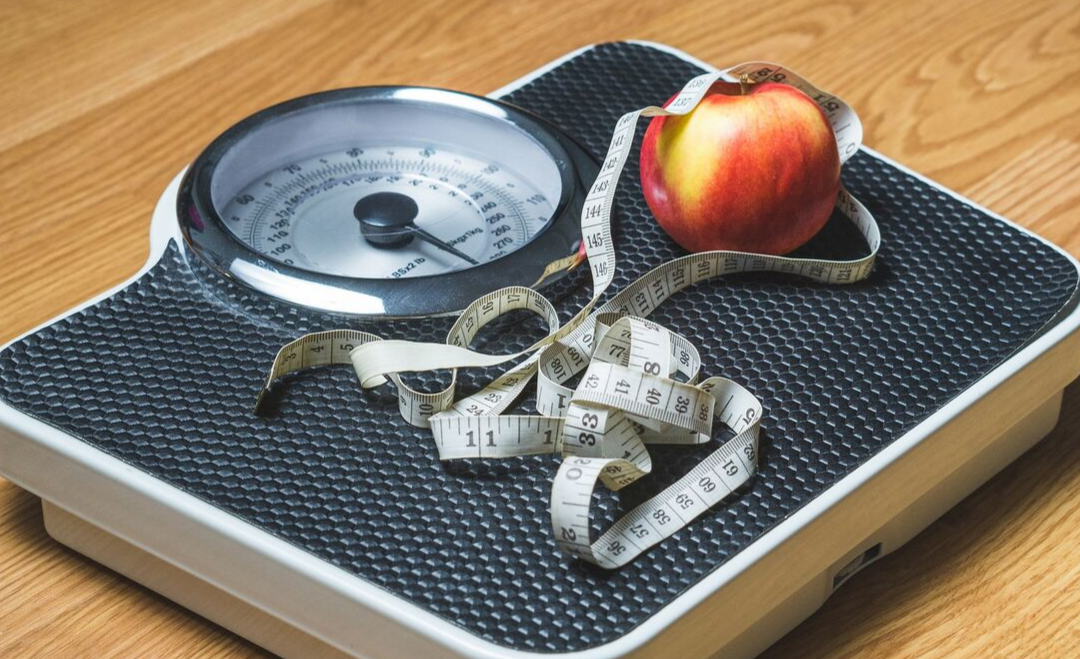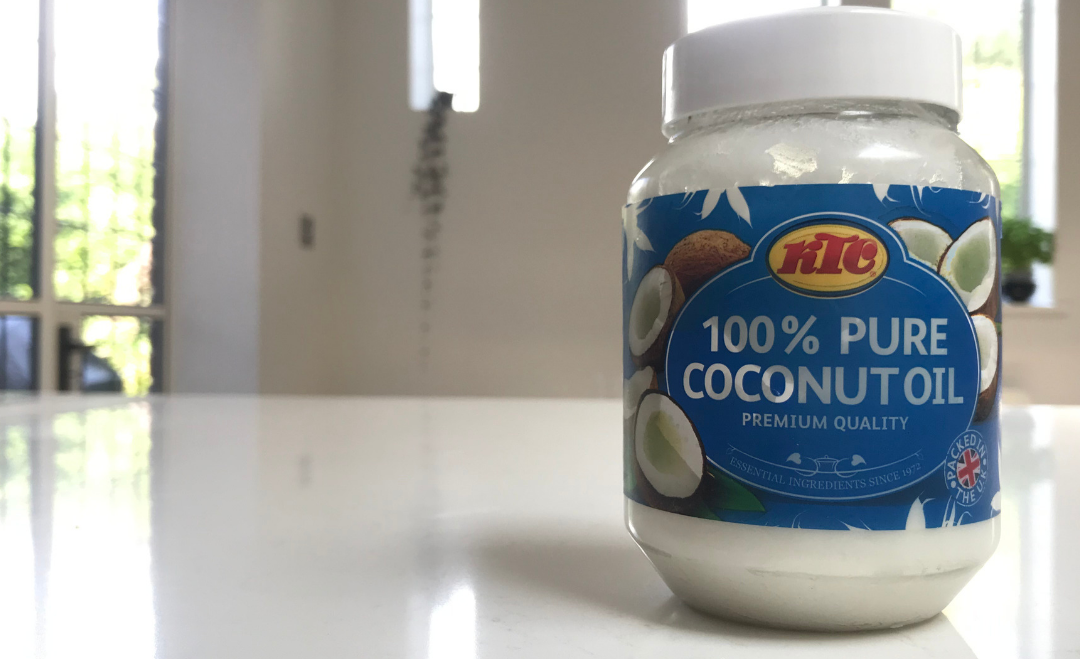
by Nutrilicious | Mar 3, 2020 | Surveys and insights, Changing mindset
Are you working on a nutrition and health strategy for change? Trying to convince your colleagues or board that your wellbeing approach is right? Developing a new food product and want to know how it will be received from a nutrition, health or sustainability point of view?
Over many years of working with people in the same situation, we know that you’re most likely to succeed if your process includes consulting those who will ultimately be influencing your target consumers – their key influencers including health leaders, NGOs, lobbying groups and health media.
Why carry out qualitative research with influencers?
Too often we’ve seen organisations launch a new initiative without consulting this important audience first – making it far more likely that the initiative won’t be the success it could be.
Do you know who is currently influencing your key target audiences on health and/or sustainability? Do you know what they are saying and might say about you and your initiatives?
These influencers will have a deep understanding of this changing landscape, the sector and the way population groups think and act as well as what they themselves want and may be telling them about your initiative. That’s what makes their insights so valuable – whether you’re using it as proof of an approach and a way to secure funding, or to help shape your thinking.
How to go about getting relevant insights
In 2019, we enjoyed many in-depth, eye-opening conversations with key health and nutrition influencers, carrying out qualitative research for clients. We listened, we learned and we helped companies inform their strategy, sell their vision to their colleagues and boards and develop new products.
The interviewing was vital, and it’s not always easy to get right. Here are our Nutrilicious top things to think about when embarking on your insights-gathering mission:
1. Choose your targets wisely. Work out the ideal criteria for mapping who you want to speak to and why. Always include disrupters and future thinkers if you have a longer term goal.
2. Your interviewee is likely to have a busy day job. Allow sufficient time for chasing appointments and contingency for cancellations.
3. Interviews don’t have to take place in a private space, but make sure it won’t be too loud.
4. Conduct the interview in pairs, to help capture everything but not overwhelm the interviewee.
5. You’re there to listen, not inform. You may be an expert in the field but you need to adopt a beginner’s mindset.
6. Try to extract facts, not opinion, and delve deep. The golden question is ‘why?’. Ask it again and again.
7. If you’re not a qualified practised insights interviewer, it’s important to work with a qualitative researcher or research team to help you. That’s why we partner with See Research. With stakeholder qualitative research we find that a combo team of a nutrition/dietetic expert lead and qualitative researcher is ideal.
8. Always ask permission before recording and don’t video the whole interview, just a summary at the end. You don’t need fancy equipment – a phone on a tripod should be enough, just check that you’re actually recording and your mobile is switched off!
9. If you can’t get a face-to-face meeting, video chat works too, using Zoom, Skype or an equivalent.
10. The interview should just be the beginning of the relationship. Use it as a way to build an understanding of what they care about, which opens doors for future conversations, for you helping them and indeed for them helping you at the communication phase.
11. What will you do with your results? Forget the insights report: it won’t be read widely. Better to paint a picture with infographics and edit your summary videos down to a single short film highlighting the key themes you’ve discovered.
We’re here to help
Hopefully, these points are useful. But if you need more support, we’re here to help – from helping identify your golden targets to delivering the learnings to support your objectives. Just get in contact, we’d love to hear from you.

by Nutrilicious | Dec 17, 2019 | Hot Topics in nutrition, Thoughts
The Game Changers is causing a stir. The documentary by Academy Award-winning filmmaker Louie Psihoyos and James Cameron investigates plant-based eating, and features the likes of Arnold Schwarzenegger, Jackie Chan, Lewis Hamilton and Novak Djokovic.
If you haven’t seen it yet, it’s streaming on Netflix now and is essential viewing. Meat and dairy are painted as deadly, with vegan diets the only solution for optimal physical and environmental health. It presents the latest nutrition, health and environmental science in an enticing and motivational way – be it in an all or nothing manner.
So does the film put the final nail in the coffin for the meat and dairy industry?
Even if you are a sceptic about vegan diets and their nutritional quality, The Game Changers cannot be criticised for the scientific credibility of the health benefits of plant-based eating presented.
Some key myths debunked by The Game Changers:
- The label ‘complete protein’ attributed to meat is dated…why do both consumers and many health professionals hold onto this belief? The truth is:
- All plants contain all essential amino acids, be it some at lower levels than meat protein.
- Food combining at mealtimes is not needed. Protein balance is achieved over the course of the day and not dependent on the protein consumed in one sitting.
- As long as individuals meet their energy requirements, a diet based purely on plant foods will achieve protein balance.
- Vegans, like omnivores, exceed their protein requirements.
The Game Changers illustrates this point brilliantly by using elite power and endurance athletes following a vegan diet, whose performance has clearly not been compromised.
- The film demasculinises meat by showing high-profile elite male strength and endurance athletes excelling on a plant-based diet.
- Iron and vitamin B12 deficiency is not a consequence of meat and dairy avoidance but a result of our current poor quality dietary and farming practices.
- Epidemiological studies have consistently demonstrated better health outcomes in individuals following more plant-based diets: heart health, cancer, diabetes, body weight.
- Soya does not feminise men, nor does it reduce testosterone levels. This has been a long-held misconception based on theoretical risk and animal studies using pure isoflavones or exceptionally high loads of soya feed. All human studies using soya foods and drinks have consistently demonstrated no risk to human health and in many cases improved health outcomes.
- And of course, sustainability. The leading scientists from the EAT forum, including Dr Rockstrom, Dr Tim Lang and Prof Walter Willet discuss the overwhelming evidence that animal farming is the leading cause of deforestation, biodiversity loss, water and soil pollution, carbon emissions and the biggest user of fresh water and land.
This is not new scientific thinking. The key facts from The Game Changers have been repeatedly demonstrated by the scientific literature from randomised controlled or epidemiological studies, meta-analyses and systematic reviews. At Nutrilicious, we’ve been championing sustainable plant-based eating amongst health professionals, organisations and brands as a core mission since our foundation.
We’re thrilled to see this reach the mass consumer. The Game Changers have presented the science in such a refreshing, convincing and inspirational way which will have significant influence on consumer perceptions and acceptance of plant-based eating – something the scientific community has been struggling to achieve despite the plethora of scientific research published.each the mass consumer.
What about the criticisms that have ensued since its release?
There will always be criticism when a seemingly radical change to day-to-day food systems is proposed, especially when one of the biggest food industries is the target – meat and dairy. Most of the critics of The Game Changers have unfortunately fallen in the common trap of using dated and poorly designed scientific studies for their counterarguments.
Some have commented that The Game Changers only reports on elite athletes and the benefits of plant-based diets cannot be extrapolated to every-day consumers.
The film’s key aim is to remove the long-held belief that removing meat and dairy from the diet will compromise protein quality and quantity, and be unable to meet other essential nutritional needs. If elite athletes’ performance can excel by switching to a vegan diet for many years, we have proof that the nutritional quality of the diet is not compromised – even in individuals with exceptionally high-quality nutritional demands.
What about other athletic performance factors such as sleep, recovery, training programme etc., not discussed by the documentary?
Firstly, The Game Changers does not set out to claim that if all consumers followed a vegan diet they can become elite athletes. Secondly, the athletes in the documentary have always followed a highly-regimented training programme and have only altered one factor – their diet, with a switch to veganism. This is an excellent group of individuals to demonstrate how changing one factor in their regimented programme does not compromise performance.
However, what The Game Changers does fail to do is bring a practical, balanced approach to how the public can change their dietary habits.
- As Arnold Schwarzenegger comments near the end of the documentary (we too are shocked that we are quoting Arnie!), telling individuals that they have to stop eating meat isn’t going to bring about change. We need to bring the public on board, gradually advising on small realistic achievable goals.
- The film lacks any practical advice on how someone can progress to a more plant-based diet in a balanced and healthy way. Advising consumers to drop key food groups is not the solution. The public needs to be guided on which foods to consume and in the right quantities.
We need to bring to life what the scientific evidence demonstrates to be a healthy ‘plant-based’ diet i.e. more fruit and vegetables, wholegrains, beans, pulses, seeds and nuts. The foods and meals served on the documentary are, in the main, highly-processed plant imitations of meat and dairy, and salads were drenched in high calorie ‘vegan’ dressings. This has to be a big watch out for retailers and food manufacturers developing and launching new plant-based foods.
Additionally, portions sizes are extremely ‘American’ (aka large), which will do little to thwart our obesity epidemic. While that may be fine for elite athletes who burn it off, it’s not so good for the average person.
- It neglects to acknowledge that most national dietary guidelines globally do focus on a more plant-based healthy and environmentally sustainable diet.
- ‘Vegan’ in itself is not the answer – someone consuming processed carbohydrates, fried and highly processed vegan foods, vegan chocolates and biscuits will do little to improve physical or environmental health.
- Finally, The Game Changers doesn’t tackle behaviour change and the importance of changing the food environment consumers live in. As the latest evidence clearly demonstrates, individual responsibility will have little, if any, impact on public health outcomes. A significantly bigger role needs to be played by all food providers.
Would we have done it differently?
In the main, this is an exceptional documentary presenting the latest scientific thinking and debunking the myths associated with plant-based diets in such a consumer inspiring and appealing way.
We need to shift consumers to a more plant-based dietary pattern – though not necessarily vegan, which is neither realistic or practical for the masses. Removing misconceptions and popularising a diet predominantly based on plant foods with just a garnish of meat and dairy is a win-win for both human and environmental health.
Our Nutrilicious tweaks would be:
- Provide more practical, how-to solutions focusing on which foods you can have, rather than which foods to avoid. Step-by-step guide to gradually including more plant foods whilst reducing animal foods.
- Rather than meat and dairy imitations, bring the focus on the versatility of natural plants such as beans, pulses, wholegrains, nuts, seeds and fruit and vegetables.
- Focus more on the food providers and marketeers and the drastic changes they need to make.
- As always in winning comms…lead with the creative ‘inspirational’ yet credible marketing spin!
Check out our related webinars:
NutriWebinar: Plant Food Source of Protein
NutriWebinar: Sustainable Diets 1 – BDA One Blue Dot
NutriWebinar: Sustainable Diets 2 – EAT Lancet
#TheGameChangers

by Nutrilicious | Oct 17, 2019 | Impactful health initiatives
The facts and figures around heart health and cholesterol are stark. Coronary heart disease (CHD) remains one of the major killers in the UK and Ireland, with 64,000 UK adults and 4,140 Irish adults dying of CHD every year.
The incidence of CHD saw an impressive decrease in the past decade thanks to better medical intervention and reduction in smoking. However, that has plateaued and incidences are beginning to rise again due to increasing rates of obesity and type 2 diabetes, compounded by the fact that we are living longer.
What can we do about it? Actually, a lot. Around 93 per cent of deaths from CHD have been attributed to risk factors that can be modified – dietary habits and lifestyle. High cholesterol levels are one of the major risk factors to CHD.
This October, HEART UK’s National Cholesterol Month, sees the launch of the updated Ultimate Cholesterol Lowering Plan (UCLP©). It’s a science-based approach to encouraging diet change to include foods proven to improve heart health – and particularly lower cholesterol levels.
Originally developed in 2011 by HEART UK with the science and nutrition team at Alpro, the step-by-step plan is based on both heart health science and behavioural strategies. It can be tailored to meet any individuals’ motivation level and preferences – users are encouraged to build the plan that suits them best, so that change is realistic and easy to maintain. They’re encouraged to incorporate more changes only as and when they feel ready to do so.
It’s made up of three steps:
1. Improving motivation and tackling barriers to change.
2. Establishing a heart healthy foundation diet.
3. Incorporating four UCLP©-specific foods to the foundation diet, proven to impact on cholesterol levels:
– Soya foods
– Oats and barley
– Foods and drinks fortified with plant stanols or sterols
– A daily handful of any unsalted, unsweetened nuts
A new scientific review for healthcare professionals shows how the latest evidence supports the UCLP© guidelines, including the benefits to heart health of:
– Reducing saturated fat and partly replacing it with heart healthy unsaturated fats: for example, replacing high saturated fat meat with plant proteins such as beans, lentils, nuts and soya; or switching from full cream dairy products to lower fat versions or plant-based drinks and yoghurt alternatives.
– Increasing oil rich fish
– Encouraging higher fruit, vegetable and wholegrain intake
The review should give confidence to the healthcare professionals that advising their patients to follow the UCLP© will have positive outcomes; equally the patients will know it’s trusted by experts. On Wednesday 30 November a special UCLP© NutriWebinar will explore the science in detail and help health professionals understand how to apply the plan. It’s free and CPD-accredited; we hope you’ll join us for it. Sign up for the UCLP© NutriWebinar

by Nutrilicious | Sep 20, 2019 | Thoughts, The Nation’s Health, Education
When it comes to food choices, what should we be advising those suffering from type 2 diabetes to help them manage weight and glucose?
Do we focus on a low carb diet?
Cutting out fat?
Or just the simple principle of sticking to Eatwell guidelines?
Media headlines continue to offer 101 different – conflicting – solutions. So what’s the truth? How can we piece together this apparent mess to best support those with diabetes?
Next week, in the second in our series of diabetes NutriWebinars, expert Dr Duane Mellor, RD, Senior Teaching Fellow at Aston Medical School, Aston University will be exploring these topics.
Looking at how advice has shifted over the past few decades, he’ll be talking through the latest evidence and explaining what health professionals can do to actually help people living with type 2 diabetes.
The webinar will also cover evidence from the last couple of years that shows that type 2 diabetes is not necessarily always a condition for life: through weight loss and maintenance, we can actually help people go into remission.
Fundamentally, it’s about putting the person with the condition at the centre – rather than trying to force them into eating habits that don’t suit their lifestyle, culture or preferences. Instead of concentrating on specific nutrients at specific times of the day – ‘you must have starchy carbs at breakfast’ – it’s working out what works for them, at the same time as creating an overall balanced diet.
Inviting questions and ideas from participants, the NutriWebinar is set to be an interesting, informative and empowering evening. (Plus, it’s free and counts as CPD.) We hope you’ll join us and encourage colleagues to join in too: register now

by Nutrilicious | Aug 19, 2019 | Hot Topics in nutrition, Surveys and insights, Changing mindset
At long last, the Scientific Advisory Committee on Nutrition (SACN) report on saturated fats and health was published this month. The conclusion? Nothing new: saturated fat leads to heart disease and we should limit it to 10% of our calorie intake. So will it finally put an end to the irresponsible advice that abounds suggesting saturated fat isn’t so bad for you?
It’s taken over a year from the draft report to final version because of the number of comments, criticisms and questions as to why certain studies were or weren’t included as part of the overall evidence into sat fats.
The SACN committee has investigated and answered each one, including only the highest quality evidence available. The studies that came to the wrong conclusions about saturated fat were shown to be flawed.
They’re open about certain limitations to the evidence: for example, whether replacing saturated fat intake with carbohydrate can be beneficial. None of the studies look specifically at ‘good’ carbs (for example wholegrain cereals), just at carbs overall. Further research still needs to be done into this.
But the overall conclusion was inescapable: to reduce cardiovascular disease we should lower our intake of saturated fat.
So will high profile influencers like Dr Michael Mosley or Joe Wicks take note and stop promoting ingredients like coconut oil, which is shown to have higher saturated fat than butter and lard?
Sadly, we think it’s unlikely. For one reason or another they seem to have too much invested in it.
But if you’re reading this and feel as strongly as we do about the need to stop the irresponsible advice, join us in canvassing the influencers to open their eyes to the dangers of what they’re suggesting – rather than just thinking about their commercial interests or looking for the next great headline. #saynotosatfat
Go to the British Nutrition Foundation website for a summary of the SACN report findings





